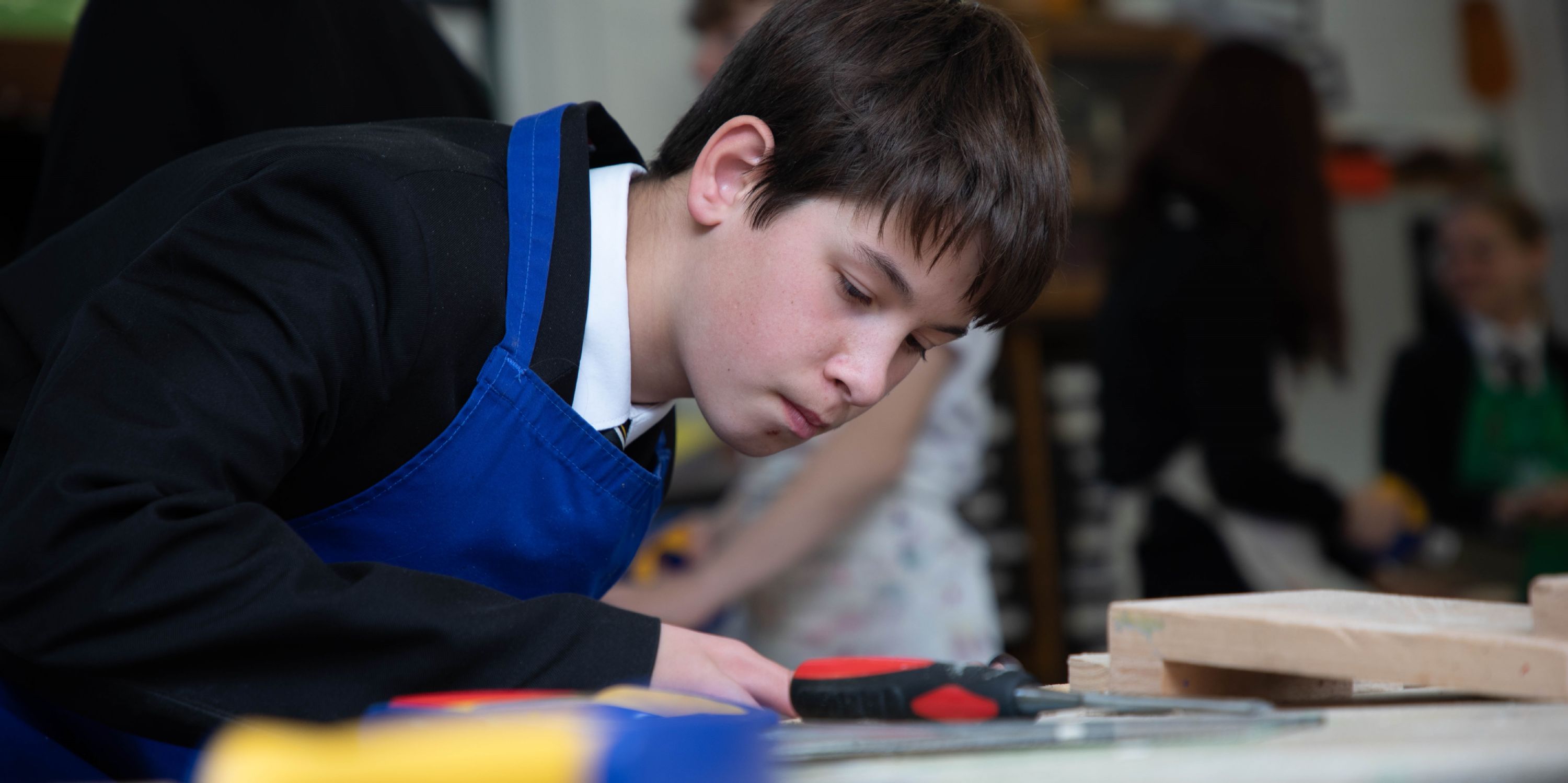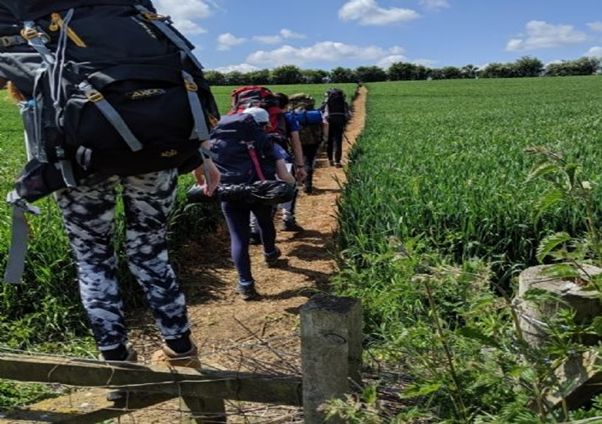Computer Science
Computer Science DEPARTMENT Curriculum Intent
In Computer Science, we aim to build a learning culture that is inclusive, engaging, and empowering for every student. Our curriculum fosters digital literacy, computational thinking, and creative problem-solving, enabling learners to explore technology with confidence and see themselves as creators—not just consumers—of the digital world.
Through every aspect of the subject, students develop our three core learning behaviours: Respect, by valuing diverse perspectives and working collaboratively in digital spaces; Responsibility, by taking ownership of their learning and making ethical decisions online; and Reflection, by evaluating their progress and continuously improving their thinking and practice.
From Key Stage 3 through to Key Stage 5, students develop the skills and mindset needed to thrive in a technology-driven world. At KS3, they explore the fundamentals of computing, programming, and digital safety through inclusive and engaging activities. At KS4, students deepen their knowledge through real-world coding challenges, scenario-based learning, and collaborative projects. At KS5, they refine their expertise and prepare for further study and a wide range of digital careers.
Kindness and accessibility underpin our teaching: we support one another’s learning, encourage creativity through collaboration, and embrace diverse perspectives as essential to innovation. Across all key stages, we celebrate diversity, promote equity, and ensure that every student—regardless of background or ability—feels welcome, capable, and empowered to succeed in the digital age. That there is Success for All in computer science.
COMPUTER SCIENCE DEPARTMENT ETHOS
Key Stage 3 - Engaged: Learning with confidence and Curiosity
At Key Stage 3, our computing curriculum is designed to spark curiosity and develop essential digital skills through hands-on, inclusive, and engaging learning. Students explore coding, data, and digital safety through projects that are both challenging and accessible.
We foster Respect in digital interactions, encouraging teamwork, empathy, and responsible digital behaviour.
We champion Reflection by supporting students to understand how they learn, where they need to grow, and how computing shapes the world around them.
Students also begin to develop Responsibility by learning to manage their own digital conduct, make ethical choices online, and take ownership of their learning journey.
Through encouragement and personalised support, learners build strong digital foundations and grow in confidence, seeing computing as a subject where they can belong and excel and achieve Success for All.
By the end of KS3, students are confident digital learners — creative, curious, and ready to take on greater challenges with purpose and pride.
Key Stage 5 - Independent: Taking ownership of and building resilience
At Key Stage 4, students continue to grow as independent digital thinkers through challenging, real-world projects that develop both technical skill and character.
Responsibility is nurtured as students take ownership of their learning, manage their time effectively, and make ethical choices in their work and online behaviour.
Respect remains central to our classroom culture — we promote peer support, celebrate individual contributions, and uphold high standards of digital conduct and collaboration.
Reflection is embedded in the learning process, encouraging students to evaluate their progress, refine their thinking, and respond constructively to feedback.
By the end of KS4, our learners are not only confident and capable in computing, but also thoughtful, resilient, and ready to contribute meaningfully to the digital world — achieving Success for All.
Key Stage 5 - Exemplary - Leading the way on responsibility, reflection and respect
At Key Stage 5, students are challenged to become expert, ethical, and ambitious technologists. Through rigorous programming, systems analysis, and cybersecurity, learners refine their skills and deepen their understanding of how computers shape the modern world.
We cultivate reflection by supporting students to think critically, ask big questions, and evaluate the social, ethical, and environmental impact of technology. Students develop this skill through ongoing project reviews, peer and self-assessment, and critical analysis of emerging digital issues — enabling them to consider not just what they create, but why it matters and how it could be improved.
Responsibility and integrity are key: students take ownership of their projects, engage in independent research, and develop the habits of lifelong learners.
Respect is shown through inclusive collaboration, thoughtful debate, and recognition of diverse voices and ideas that drive innovation.
By the end of KS5, students are not only ready for higher education or industry, but are also equipped to lead change in a connected world with purpose, creativity, and compassion.
CAREERS LINKED TO COMPUTER SCIENCE
Why study Computer Science?
Students should take Computer Science because it teaches problem-solving, logical thinking, and creativity—skills that are valuable in every career. In a world increasingly shaped by technology, understanding how computers work gives students the power to not just use technology, but to shape it. Whether they want to design apps, build websites, develop games, or work in medicine, finance, or engineering, Computer Science opens doors. It also helps students become more responsible and informed digital citizens.
Skills You’ll Gain
- Programming and software development
- Logical reasoning and problem-solving
- Data analysis and computational thinking
- Cybersecurity awareness
- Creativity and innovation
- Project management and collaboration
- Digital literacy and IT proficiency
Education & Careers Pathways
- GCSE Computer Science ➝ A-Level Computer Science ➝ University or Apprentice
- T-Levels in Digital Production, Design and Development
- Higher Education in Computer Science, Software Engineering, Data Science, Artificial Intelligence, Cybersecurity, or Game Development
- Professional certifications: CompTIA, Cisco (CCNA), Microsoft, AWS, Google Cloud
- Apprenticeship Routes: Software Developer, IT Support Technician, Network Engineer, Cybersecurity Technician
- Software Developer – Creates apps, programs, and systems for various industries
- Cyber Security Analyst – Protects digital systems and data from cyber threats
- Data Scientist – Extracts insights from complex data to inform decisions
- AI/Machine Learning Engineer – Designs systems that can learn and make decisions
- Network Engineer – Manages and optimises computer networks
- Web Developer – Builds and maintains websites and web applications
- IT Support Specialist – Provides technical help and system maintenance
- Game Designer – Creates immersive, interactive gaming experiences
- Robotics Engineer – Designs and programs automated systems and robots
- Digital Forensics Analyst – Investigates cyber crimes and recovers data
- UX/UI Designer – Ensures digital products are accessible, inclusive, and user-friendly
ASSESSMENT
Year 7:
|
Term 1 |
E-Safety Assessment |
|
Term 2 |
Fake News (Critical Thinking) Project |
|
Term 4 |
Computer Systems Assessment |
|
Term 6 |
Programming Fundamentals Assessment |
Year 8:
|
Term 1 |
Number Systems Assessment |
|
Term 2 |
Searching and Sorting Assessment |
|
Term 5 |
JavaScript Basics & Variables Assessment |
Year 9:
|
Term 1 |
CyberCrime Assessment |
|
Term 2 |
Computer Networks Assessment |
|
Term 4 |
Data Representation Assessment |
|
Term 5 |
Advanced javaScript Project |
KS4:
Students in Year 10 and 11 have a cumulative assessment at the end of every term that assessments their progress up to that point.
In addition, Year 10 students have a complete paper 1 mock exam at the end of Year 10. Year 11 students take a full set of mock papers (paper 1 and paper 2) in February.
KS5:
Students have a cumulative assessment at the end of every term and a mock exam at the end of Year 12 and in February they will sit both exam papers in Year 13 as a mock exam.
FURTHER READING
Accordion content
LEARNING JOURNEY
| YEAR 7 | |||||||||||||||||||||
|---|---|---|---|---|---|---|---|---|---|---|---|---|---|---|---|---|---|---|---|---|---|
|
| YEAR 8 | |||||||||||||||||||||
|---|---|---|---|---|---|---|---|---|---|---|---|---|---|---|---|---|---|---|---|---|---|
|
| YEAR 9 | |||||||||||||||||||||
|---|---|---|---|---|---|---|---|---|---|---|---|---|---|---|---|---|---|---|---|---|---|
|
| YEAR 10 | |||||||||||||||||||||
|---|---|---|---|---|---|---|---|---|---|---|---|---|---|---|---|---|---|---|---|---|---|
|
| YEAR 11 | |||||||||||||||||||||
|---|---|---|---|---|---|---|---|---|---|---|---|---|---|---|---|---|---|---|---|---|---|
|
REVISION RESOURCES
Accordion content










